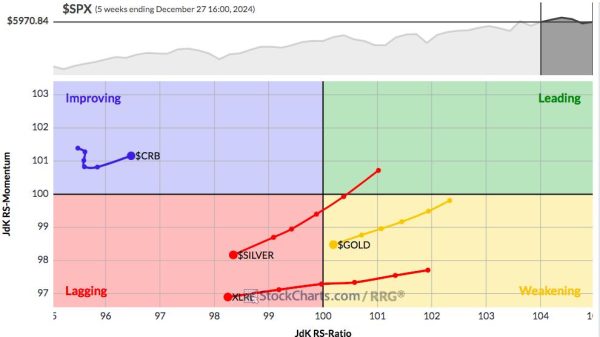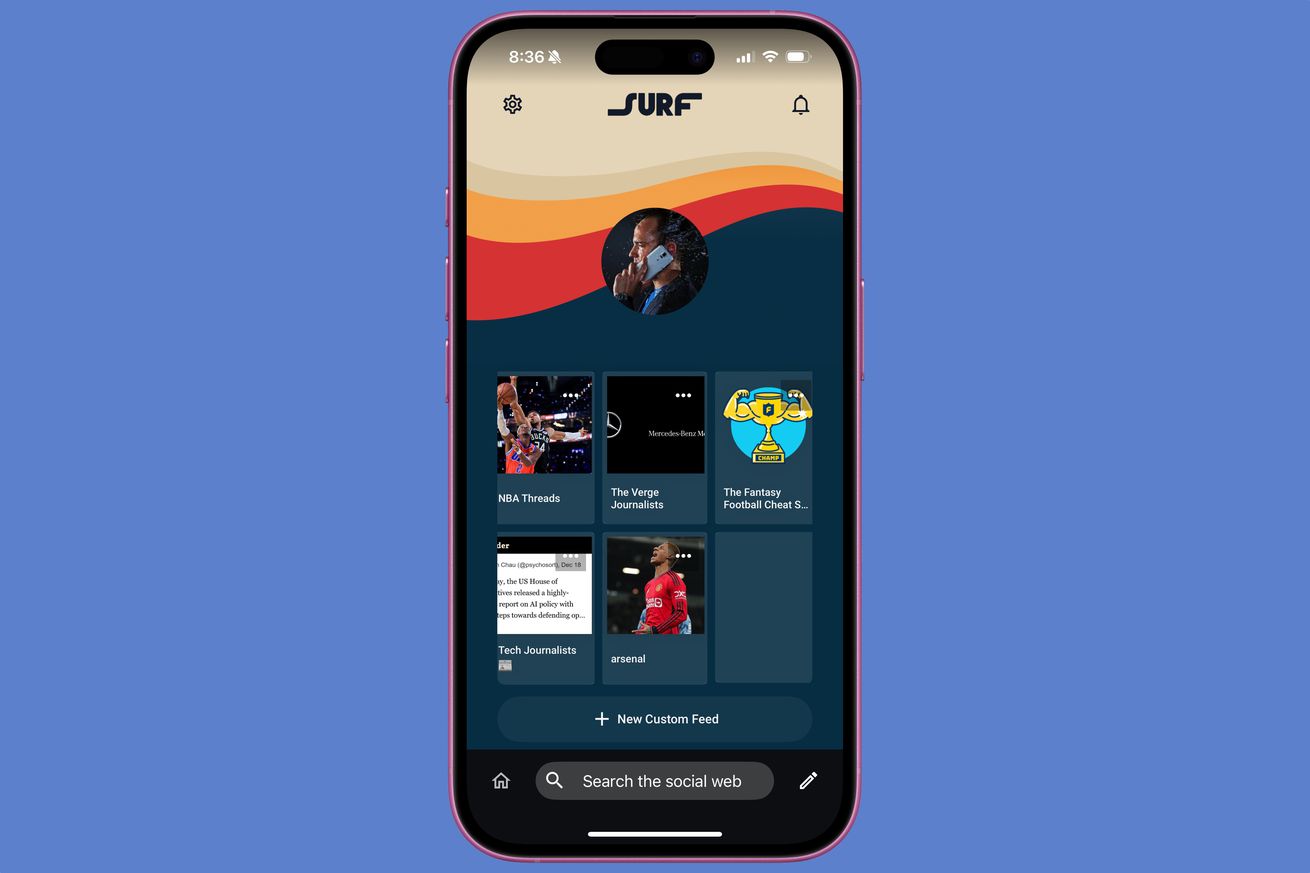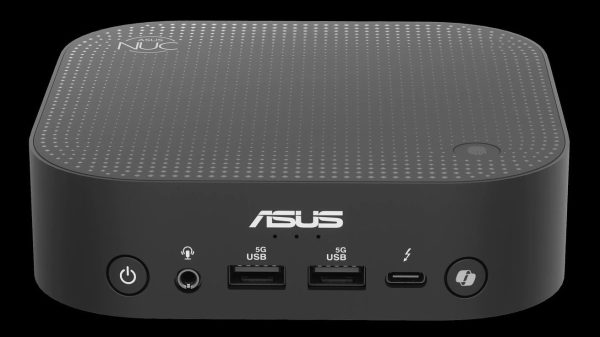
Mike McCue, the CEO of Flipboard and an internet entrepreneur since the Netscape days, is a true believer in the fediverse. He doesn’t love the word: he’d much rather call it “the social web.” But whatever you want to call the open, decentralized, interconnected social networking experience that apps like Mastodon and Bluesky promise, McCue is absolutely convinced it’s the future.
For the last year or so, McCue and his team have been completely overhauling the Flipboard platform to make it a part of the social web. Once the change is done, Flipboard will be a fully decentralized way to discover and read stuff from across the internet. The process seems to be going fine, though it doesn’t seem poised to take over the fediverse the way Threads could if it fully opened up.
At the same time, though, the Flipboard team has been working on something even bigger. That something is an app called Surf (not to be confused with the other recently launched Surf), which McCue called “the world’s first browser for the social web.” He first said that to me a little over a year ago, when Surf was mostly just a bunch of mock-ups and a slide deck. Now, the app has been in beta for the last few months — I’ve been using it most of that time — and a public beta is launching today. Not everyone can get in; McCue says he wants to bring in some curators and creators first, in order for there to be lots of stuff in Surf when everyone else gets access. And he promises that’s coming soon.
But wait, sorry, back to the whole “browser for the social web” thing. McCue’s best explanation of Surf’s big theory is this: in a decentralized social world, the internet will be less about websites and more about feeds. “You won’t put in, like, theverge.com and go to the website for The Verge, but you can put in ‘the verge’ and go to the ActivityPub feed for The Verge.” Your Threads timeline is a feed; every Bluesky Starter Pack is a feed; every creator you follow is just producing a feed of content.
Surf’s job, in that world, is to help you discover and explore all those feeds. The app can see three kinds of feeds: anything from ActivityPub, which means things like Mastodon and Threads and Pixelfed; anything from AT Protocol, which means Bluesky; and any RSS feed. You can search for feeds by topic, publisher, or creator; you can curate your own feeds by combining other feeds. And then you can share those feeds, which other people can combine and recombine. It’s all a little confusing. Just imagine a nicely designed, vertically scrolling feed, somewhere between a Twitter timeline and the Apple News homepage.
/cdn.vox-cdn.com/uploads/chorus_asset/file/25795834/Flipboard_content.jpg)
Image: David Pierce / Surf
A feed can be made up of almost any kind of content, which presents a tricky design problem for Surf. It has to be equally adept as a social network, a news app, a video platform, and a podcast player. Combining all that stuff into one place isn’t just the goal; it’s the whole point. And it’s very hard to do all of those things well.
Personally, the most eye-opening moment in my time testing Surf has been the way the app lets you automatically filter a feed. I set up a feed that’s just all my favorite stuff: my go-to podcasts, must-read blogs, a couple of can’t-miss YouTube channels, and my favorite folks on Bluesky. I can open that feed and see everything, in order, no matter what it is or who it came from. But I can also filter it to just show all the videos in the feed or tap on “Listen” to turn it into a podcast queue.
Surf isn’t yet a full-featured app for any of these uses, much less all of them, but it’s already a pretty useful app for all kinds of media. It presents videos like an endlessly scrolling TikTok feed, which is actually a pretty fun way to flip through a YouTube channel. Posts with links are formatted like news stories, with big images and headlines. It’s not a particularly dense timeline-scrolling experience, either — the whole thing is more like Flipboard’s flippy magazines than the For You pages we’re used to.
/cdn.vox-cdn.com/uploads/chorus_asset/file/25795829/Surf_NBA_Threads.jpg)
Because it’s trying to compile a bunch of disparate platforms into one, search can be messy — I found five profiles with my name and picture, for instance, and it’s not obvious which one is the one you’re looking for. Surf is also designed to be interactive, but right now, that pretty much only works if you’re a Mastodon user liking Mastodon posts. For most other things, it’s either kind of broken or entirely broken. For now, and probably for a while, Surf is going to be much better as a consumption tool than a social one.
McCue sees the social web as the beginning of an entirely new internet. He even uses old-web metaphors to explain these early products: the current era we’re in is like AOL back in the day, “a walled garden that contained all the innovation in the walled garden”; Surf is like old-school Yahoo, “a collection of feeds that other people have made.” He wants to enable paid feeds, so publishers, creators, and curators can make money on the platform. He has big ideas about custom designs for feeds, so they can look more like homepages.
There’s an awful lot left to build — not to mention a lot of protocols and tools left to convince all the internet’s platforms and publishers to work with. But I’ve been talking to McCue about this for two years now, and his conviction and optimism haven’t wavered a bit. When I tell him that I definitely wavered — that I was once all in on ActivityPub as the future but am worried seeing Bluesky grow on another protocol and hearing some of the issues Threads and others are having with ActivityPub — he just laughs. One, he says, that’s how it always goes in these early phases. Two, that’s what Surf is meant to fix.
To prove his point, McCue opens up a feed full of basketball content, created by David Rushing. Rushing was a big figure in early NBA Threads, a community that has splintered thanks to some of Threads’ moderation and community policies. Now, people are posting with #nbathreads on Bluesky and elsewhere, too. It’s messy. But Surf, McCue says, can bring it back together. He starts scrolling Rushing’s custom feed: “You’re seeing Bluesky posts, Mastodon posts, Threads posts, Flipboard posts, anything with the hashtag #nbathreads across the whole social web. If you post a podcast, if you post a YouTube video, anything with the hashtag #nbathreads, it’ll show up in this feed.” Rushing can add or remove individual posts or even use Flipboard’s filtering systems to get rid of anything that feels political, mentions gambling, or whatever else he wants to do.
McCue is practically giddy as he scrolls through all this basketball content. This is the whole thing, right here. “Ultimately,” he says, “you’re just not going to care whether something is on Threads — I don’t write you a separate kind of email because you’re on Gmail, right?” People will use lots of apps, there will be lots of communities, and that’s good. “There are nerds on Bluesky, there are nerds on Threads. How can all the nerds gather together?” That’s the question for the fediverse — sorry, the social web — and Surf looks like it might be the best answer anyone’s come up with so far.





























